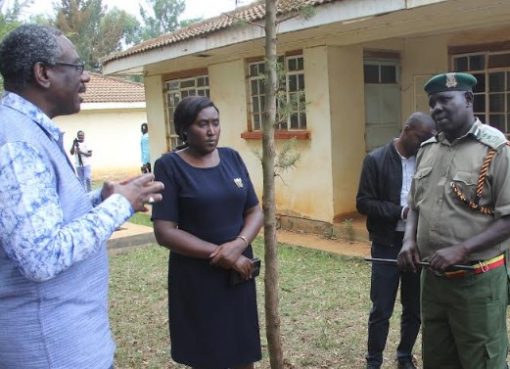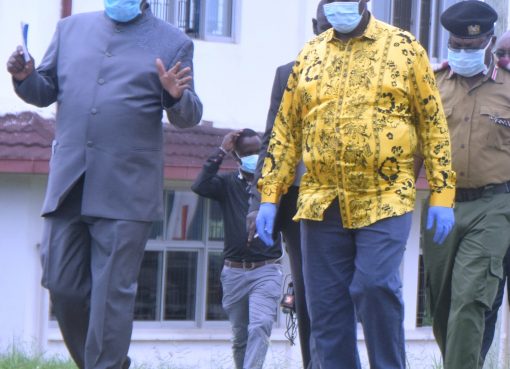The government will on Tuesday open bids for interested investors who want to lease the five State-owned sugar mills.
The Agriculture Cabinet Secretary (CS), Peter Munya said that the procurement processes of the leases were on track in line with Public Procurement and Asset Disposal Act, 2015.
The Ministry had received Cabinet approval to invite investors to take long-term leases on the five State-owned Mills namely Chemelil, Muhoroni (under receivership), Miwani (under receivership), Nzoia and Sony Sugar Companies.
Giving a progress made on reforms in the sugar sub sector on Monday at Kilimo House, the CS explained that an International Expression of Interest was advertised on 10th July 2020 and would close end of day today 3rd August 2020.
“We shall send out a Request for Proposal (RFP) to all the firms prequalified at the Expression of Interest stage and as a government, we are committed to a transparent, honest, credible and accountable process,” the CS said.
The government wants to attract and finally secure only those investors who were serious and worthy to partner with her in the revival of the sugar industry in Kenya, Munya said.
He also invited stakeholders for the public opening of the International Expression of Interest (IEOI) scheduled to take place at the Agriculture and Food Authority (AFA) Headquarters Tuesday August 4, 2020 at 14:00 hrs.
Munya confirmed that the Ministry has had excellent consultations with the governors in the sugar belt on this issue and that there was no impasse between the Governors and the National Government as the leasing process was on course.
Meanwhile, the CS has called upon Sugarcane Growers and Millers Association in the sugar sub-sector to register with Agriculture and Food Authority (AFA) in order to give them formality and visibility.
The registration, he added, would also make it easier for farmers to advocate and lobby for their own interests including for membership to the Sugarcane Pricing Committee as well as make it easier to deliver services to farmers through the support of the National and County Governments.
“The registration will also see them pursue their interests and have an organized platform through which they can engage other value chain players as well as regulators,” he said.
The registration is among the Sugar Taskforce Report recommendations put in place in the regulations to stabilize the sugar industry and covers all aspects of registration of growers, out growers’ institutions as well as millers and their umbrella bodies
Munya said the Ministry has drafted and published two sets of regulations The Crops (Sugar) (General) Regulations, 2020 and The Crops (Sugar) (Imports, Exports and By-products) Regulations, 2020 which came into force on May 27, 2020 and July 10, 2020 respectively.
In addition, the CS said the regulations covered agreements on sugar and sugar cane products and addressed sugarcane development plans, the milling capacity of millers, the establishment and functions of the sugarcane pricing committees and the implementation of sugar cane testing services and standards.
“I don’t expect the process we have embarked on to be all smooth sailing. It is never easy or painless to revive a sub-sector such as this which has suffered a myriad of governance, financial and regulatory failures and set-backs,” the CS said.
He explained that there were vested interests; those who benefit from a chronically weak sugar subsector and who won’t be happy with the reforms now underway but noted that a prosperous sugar sector could withstand any short run pain that some stakeholders may experience.
In order to promote awareness in the sector, Munya directed that a shortened, consumable version of the regulations be produced in form of guidelines for stakeholders adding that going forward, no sugar would be imported or exported outside the framework of the regulations and guidelines.
In July 2020, the government had temporarily suspended the importation of sugar after there was excess importation of sugar in the first half of the year which led to serious market distortions such as low sugar prices at factory level.
The reforms in the sugar sub-sector saw a Sugar Taskforce formed and a report launched by President Uhuru Kenya in February 2020 this year and implementation begin immediately.
By Wangari Ndirangu





